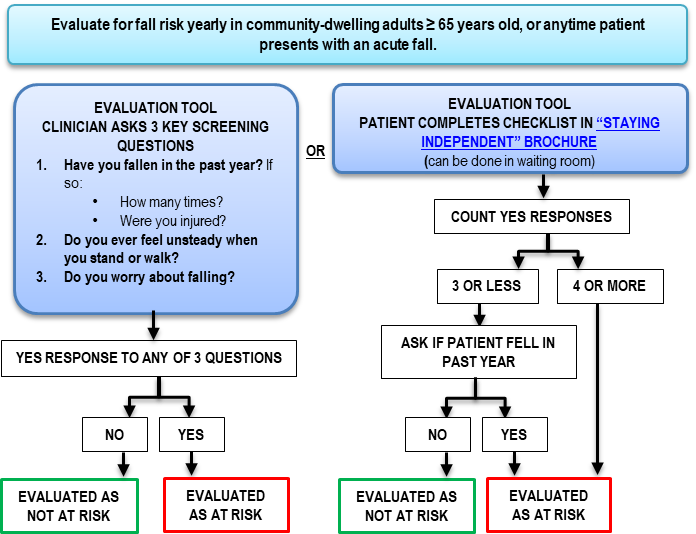Dementia Fall Risk - Questions
Dementia Fall Risk - Questions
Blog Article
Everything about Dementia Fall Risk
Table of ContentsThe Only Guide to Dementia Fall RiskThe Best Guide To Dementia Fall RiskRumored Buzz on Dementia Fall RiskSome Ideas on Dementia Fall Risk You Need To Know7 Easy Facts About Dementia Fall Risk Described
You could be nervous since you have actually had a fall prior to or since you've discovered you're starting to really feel unstable on your feet. You could have observed adjustments to your wellness, or simply seem like you're decreasing a little. Whatever the factor, it isn't uncommon to become careful and lose self-confidence, and this can stop you doing things you made use of to do and make you really feel much more isolated.If you have actually had a loss or you have actually begun to feel unsteady, tell your doctor also if you really feel great otherwise. Your medical professional can inspect your equilibrium and the means you stroll to see if renovations can be made. They might be able to refer you for a falls danger evaluation or to the falls avoidance service.
This info can be gotten with meetings with the person, their caretakers, and an evaluation of their medical documents. Begin by asking the private concerning their background of falls, consisting of the frequency and conditions of any type of current falls. Dementia Fall Risk. Ask about any kind of wheelchair problems they may experience, such as unsteady or trouble walking
Conduct a comprehensive review of the person's medications, paying specific attention to those recognized to enhance the threat of falls, such as sedatives or drugs that lower blood stress. Identify if they are taking numerous drugs or if there have actually been recent modifications in their medication program. Evaluate the individual's home setting for prospective dangers that can boost the risk of drops, such as poor illumination, loosened rugs, or lack of grab bars in the washroom.
Dementia Fall Risk Fundamentals Explained
Overview the person via the loss danger evaluation type, describing each concern and taping their actions precisely. Determine the overall risk score based on the responses offered in the analysis form.
This plan may consist of workout programs to enhance stamina and balance, medication adjustments, home alterations, and references to various other experts as needed. Frequently keep track of the individual's progress and reassess their threat of falls as needed. Modify the treatment plan based on adjustments in their health and wellness condition or home atmosphere. Provide continuous education and learning and assistance to promote security and decrease the threat of drops in their daily living tasks.
Several research studies have shown that physical therapy can assist to lower the risk of dropping in grownups ages 65 and older. In a new research (that looked at drops threat in females ages 80 and older), scientists computed the economic effect of selecting physical treatment to avoid falls, and they located that doing so conserves $2,144, including all the concealed expenses of your time, discomfort, missed life occasions, and the dollars spent for services.
Indicators on Dementia Fall Risk You Should Know
Inspecting your heart rate and blood pressure measurements at rest and while you turn (from resting or lying to standing). An easy test of your reasoning (cognitive) capacities. Examining your Read Full Report balance, stamina, and strolling capacity. A basic vision examination. Examining your feet and shoes. A home safety evaluation. Based upon the evaluation results, your physiotherapist will develop a plan that is customized to your details requirements.
Older adults who have trouble strolling and speaking at the exact same time go to a greater danger of falling. Dementia Fall Risk. To assist boost your safety and security throughout everyday tasks, your physical therapist may develop a training program that will certainly test read you to keep standing and strolling while you do one more job. Examples consist of strolling or standing while counting in reverse, having a discussion, or carrying a bag of grocery stores
Establish objectives for boosting their physical activity. Work out much more to raise their toughness and balance. These programs often are led by volunteer instructors.
Unknown Facts About Dementia Fall Risk

Measles, or rubeola, is an extremely contagious, acute viral infectious disease brought on by the measles infection. Some individuals believe of measles as simply a rash and fever that cleans up in a few days; however, measles can trigger major health and wellness difficulties, particularly in kids younger than 5-years-old. The ideal defense versus measles is the measles, mumps, and rubella (MMR) vaccine.
Falls are an usual reason of injury among older adults.
Not known Factual Statements About Dementia Fall Risk
-copy-5.jpg)
She has no history of falls, her gait is constant, and she invalidates with no problems. The previous nurse states that she calls for aid to the washroom when she needs to go.
Instances of common fall interventions/measures consist of: Ensuring a client's essential things are within reach. Beyond comprehending exactly how to utilize the Johns Hopkins Fall Threat Assessment Device, it's vital that centers include its use into an extra comprehensive fall prevention plan.
Report this page